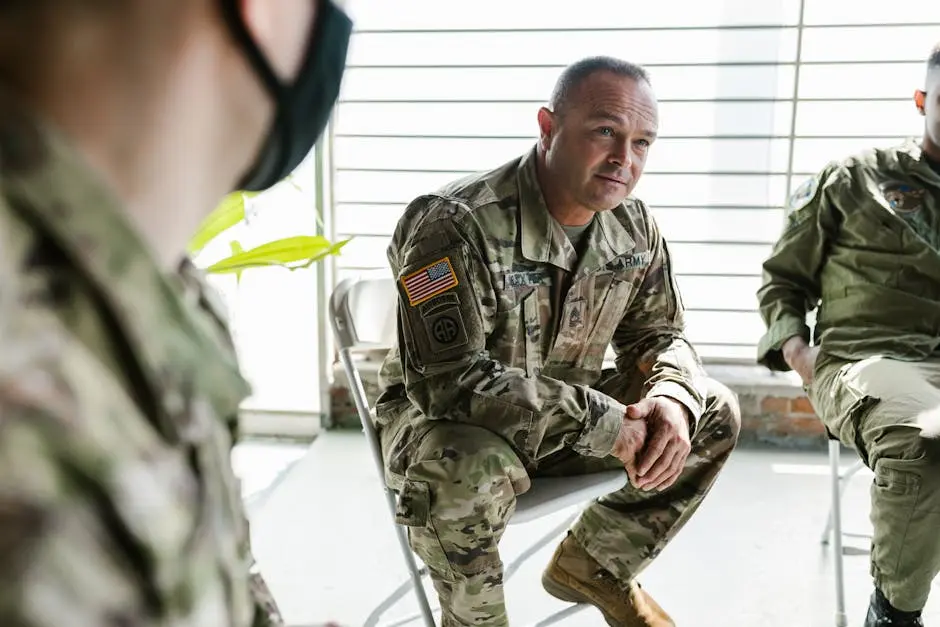Navigating the world of disability claims management can be challenging for veterans. The process involves several hurdles, from understanding complex documentation to the emotional strain of recounting personal experiences. In this blog, we will explore the key challenges veterans often face and discuss ways to manage them effectively.
Understanding the Documentation Requirements
One of the first hurdles for veterans in disability claims management is understanding the extensive and often complex documentation required. Ensuring all necessary papers are in order is crucial to avoid delays in the claims process. Veterans have to juggle military service records, medical records, and sometimes even personal statements, which can be daunting without clear guidance. According to the Top 5 Tips for Navigating Disability Claims Management as a Veteran, organizing documents meticulously can streamline the process and improve the chances of timely results.
Service treatment records and VA medical records are just the tip of the iceberg when it comes to the documentation needed. Veterans must also gather private medical records, if applicable, and witness statements that can add weight to their claims. Creating a narrative through a detailed timeline of medical events related to service can be a powerful tool in ensuring the VA thoroughly understands a veteran’s situation. Maximizing the effectiveness of your submission often rests on these well-organized, detailed documents.
The Veterans Educating Veterans provide invaluable guidance on how to handle these requirements without feeling overwhelmed. They suggest that having a clear understanding of the VA’s documentation expectations can minimize frustration and expedite the claims process.
Dealing with Processing Delays
Veterans frequently encounter delays in the processing of their claims, which can be deeply frustrating and emotionally taxing, especially when waiting for essential benefits. This issue isn’t just a minor hiccup; it’s a significant challenge that affects thousands. As highlighted in a Federal Times article, around 32,000 veterans experienced delays due to a technical glitch in federal filing systems, some waiting as long as five years.
While these delays can feel like an insurmountable barrier, it’s important for veterans to keep organized and maintain open lines of communication with the VA. Regularly checking the status of claims and being proactive about following up can sometimes nudge the process along. The backlog is a problem without a quick fix, but veterans should remain vigilant and informed. Keeping comprehensive records of all interactions with the VA can also prepare veterans in case they need to appeal or seek assistance from veteran service organizations.
Managing Emotional Stress
The entire process of filing a disability claim can require veterans to revisit traumatic or distressing periods from their past, which often triggers significant emotional stress. This emotional burden is a common aspect of the claims process that can greatly impact one’s mental health. It’s crucial for veterans to leverage support systems such as counseling services and veteran support groups.
Reaching out for mental health support is not a sign of weakness but an essential step in maintaining well-being during this stressful time. Community-based veteran organizations often provide a wealth of resources that veterans can access without judgment. Incorporating mindfulness practices, like meditation or deep-breathing exercises, into the daily routine can also help manage anxiety and stress associated with the claims process.
Navigating Appeal Procedures
When a claim is denied, it doesn’t mark the end of the journey. Navigating the appeal procedures can be challenging but understanding the steps involved is key to a successful outcome. Veterans can opt for a Supplemental Claim, Higher-Level Review, or Board Appeal, with each pathway offering different opportunities for support.
It’s important to gather additional evidence and maintain clear communication with the VA throughout the appeal process. According to expert advice on securing VA disability claims, having a well-rounded support team that includes legal assistance can be incredibly beneficial. With the right strategy and a supportive network, veterans can have a second chance at securing the benefits they deserve.
Finding Reliable Assistance
Finding the right assistance is often the turning point in successfully managing a disability claim. Many times, veterans do not realize the plethora of resources available to help them navigate the intricate VA system. Organizations dedicated to veteran services can provide invaluable guidance and support.
Partnering with professionals who understand the intricacies of the VA disability claims process can significantly alleviate stress and improve outcomes. A VA Disability Consultant can offer tailored advice and advocacy, ensuring that veterans are not handling the burdens of their claims alone. Engaging with professionals and veteran advocates empowers veterans and increases their likelihood of receiving the correct benefits.
Overcoming Challenges in Disability Claims Management
Disability claims management can be daunting, but understanding the hurdles and taking proactive steps can ease the burden. By seeking proper assistance and staying informed, veterans can navigate this process more effectively, gaining the support and benefits they deserve.


